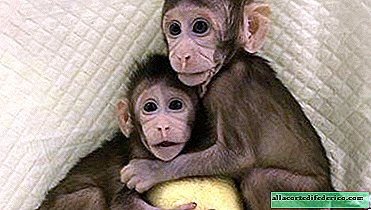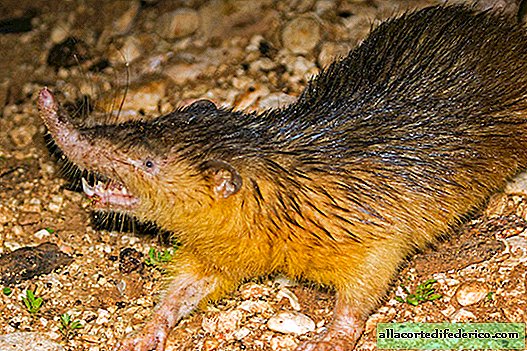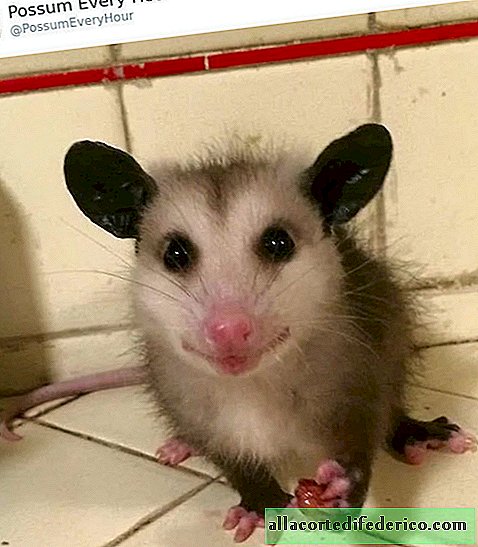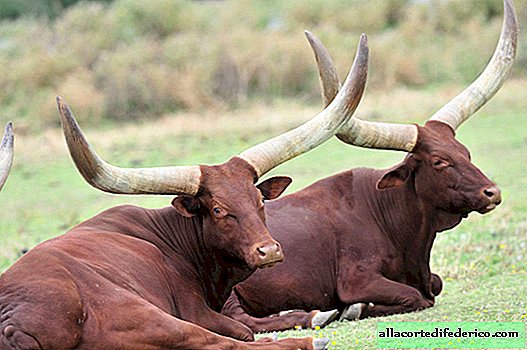Chinese geneticists cloned primates, next in line dinosaurs, mammoths and humans
Not so long ago, sensational news spread around the world: Chinese geneticists raised two macaque clones using the same technology by which Dolly the sheep was obtained. According to scientists, this is the first such success in the field of primate cloning.

Advanced cloning technology was developed by scientists from the Center for the Study of Primates at the Institute of Neurophysiology (Shanghai). Two Javanese macaques were born with the help of a surrogate mother, and today their age is 8 and 6 months. Zhong Zhong and Hua Hua have exactly the same DNA. Connector tissue cells acted as a DNA donor for the preparation of twins.

Since Dolly’s sheep was obtained by cloning in Scotland in 1996, scientists have not stopped improving this method. It should be noted that the Dolly sheep was the first mammal to be cloned using the nucleus of an adult somatic cell, rather than using germ cells. The original animal was already dead at the time Dolly appeared, and its biological material was stored in liquid nitrogen. After some time, a scientific refutation came out that Dolly actually inherited the genome of two mothers, and therefore is not a genetic clone. Be that as it may, Dolly the sheep lived a relatively short life. At 4 years old, she began to have health problems, and at 7 years old she died, while her relatives usually live up to 10-12 years. Dolly had to be euthanized due to incurable diseases, which was the reason for scientific discussions.

Some scientists were of the version that the early death of a cloned sheep is nothing more than a combination of adverse circumstances. Others believe that it was the unusual way in which Dolly was born that caused her death. They believe that cloned animals are initially less likely to live well.

After Dolly, several more mammals were cloned: sheep, horses, dogs, cats and bulls. All of them were in good health and gave scientists hope that cloning of mammals could soon be applied to primates, the closest relatives of humans. But it was with the primates of geneticists that failures long pursued. And now, when Chinese scientists managed to clone macaques, new perspectives opened up before science. According to Chinese geneticists, cloning primates will help in the study of many human genetic diseases, as well as immune disorders.

But the problem of cloning lies not only in improving the technology itself, but also in the ethical side of this process. For example, the very appearance of Dolly caused a controversial reaction in society. Some enthusiastically believed that this was a scientific breakthrough that would allow mankind to solve many important problems, while others, on the contrary, were concerned about the experiments of geneticists.
A special position was taken by society regarding possible human cloning. According to most experts, human cloning will lead to legal, ethical and religious problems. For this reason, human cloning is currently prohibited in many developed countries, and criminal liability is provided for violating this prohibition. In Russia, the federal law On Temporary Ban on Human Cloning, adopted in 2002, is in force.
In connection with the ban, the procedure itself has not lost prospects. Scientists hope that with the help of cloning it will be possible to defeat diseases and revive extinct species of animals: dinosaurs, saber-toothed tigers, mammoths and some others. But many understand that the ultimate goal of developing this technology is nevertheless precisely human cloning.


















